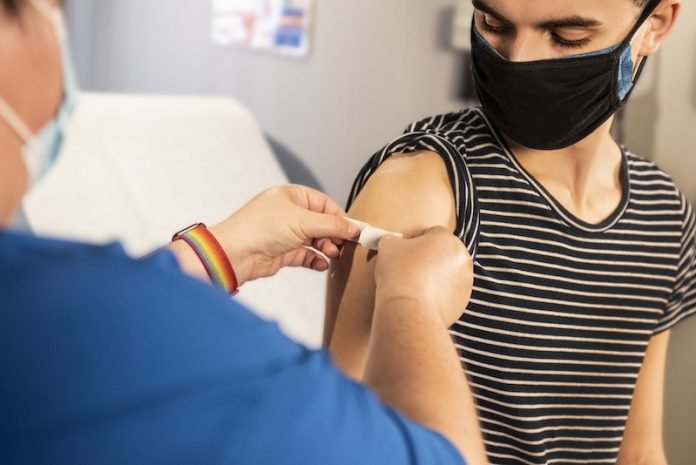
In a new study from the University of Oxford and elsewhere, researchers found a third, booster dose of either the ChAdOx1 nCoV-19 (Oxford-AstraZeneca), BNT162b2 (Pfizer-BioNTech), AD26.COV2-S (Janssen) or CoronaVac (SinoVac) coronavirus vaccine induce a big increase in antibody levels in those who have previously received two doses of CoronaVac.
The strongest responses were seen with mixed schedules, including against the Delta and Omicron variants of concern.
This study shows that the inactivated vaccine, CoronaVac, can be successfully boosted with a range of different vaccines, with the strongest responses when a viral vector or RNA vaccine is used.
The global priority remains first and second doses but this study provides important options for policymakers in the many countries where inactivated vaccines, like CoronaVac, have been used.
In the study, the researchers tested 1,240 volunteers in São Paulo, and Salvador, Brazil, 1,205 of whom were eligible for inclusion in the final analysis.
These volunteers were divided into four groups, receiving a booster dose of either the Oxford-AstraZeneca, Pfizer-BioNTech, Janssen or CoronaVac coronavirus vaccines, six months after their prior immunisations with CoronaVac.
Antibody levels were low prior to delivery of the booster doses, with only 20.4% of adults aged 18-60 and 8.9% of adults aged over 60 having detectable levels of neutralising antibodies.
These were seen to strongly increase across every booster vaccine regimen, across all groups, 28 days post-vaccination – with the highest responses recorded after the RNA and viral vector vaccines, including responses against Delta and Omicron.
This increase in binding and neutralising antibodies may improve protection against infection in vaccinated, and boosted, individuals, the researchers conclude.
If you care about COVID, please read studies that nanoparticles in COVID-19 mRNA vaccines are nothing to fear, and vitamin deficiency could strongly increase risk of COVID-19.
For more information about health, please see recent studies about the most effective method to reduce COVID-19 spread, and results showing these two anti-inflammatory drugs could boost recovery from severe COVID-19.
The study is published in the Lancet and was conducted by Professor Sir Andrew Pollard et al.
Copyright © 2022 Knowridge Science Report. All rights reserved.




